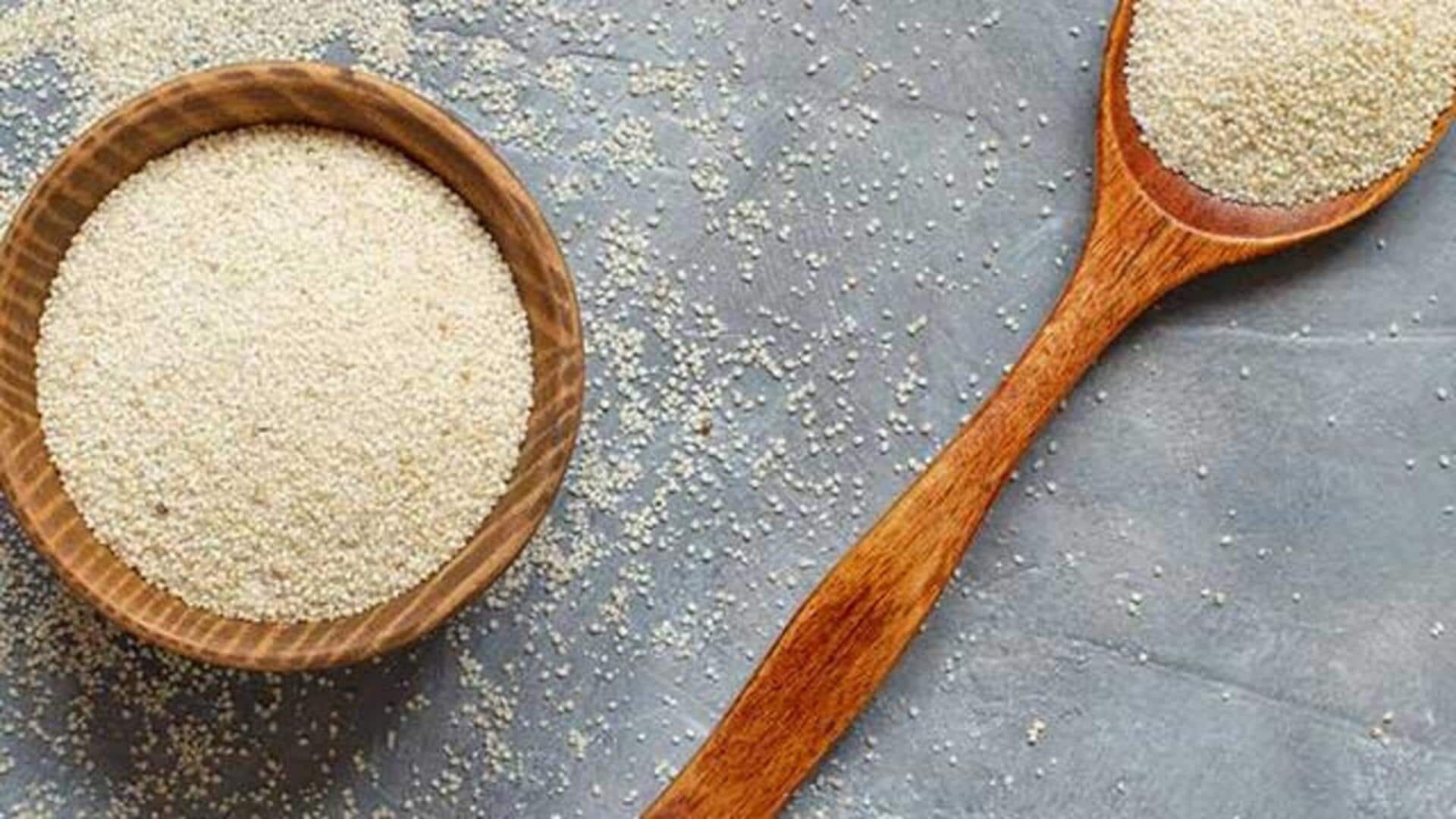
Essential seeds in African grain dishes
What's the story
African cuisine is incredibly diverse, mirroring the continent's vast tapestry of cultures.
Despite this diversity, one unifying element is the dependence on grains as the foundation of most meals.
This article delves into the essential seeds that define African grain dishes, showcasing their significance and versatility in the continent's culinary traditions.
Sorghum
Sorghum: The versatile grain
Sorghum is a super grain! This versatile grain is a staple across Africa, thanks to its drought resistance and ability to grow in different types of soil.
It is the key ingredient in many traditional dishes, from delicious porridges and breads to unique beers.
But it's not just about taste - sorghum packs a serious nutritional punch. It's loaded with fiber, protein, and essential minerals like iron and phosphorus.
Millet
Millet: A nutrient-rich seed
Millet refers to a group of small-seeded grasses grown for food throughout Africa.
It is especially popular in dry areas due to its ability to withstand drought.
Packed with B vitamins, potassium, phosphorus, magnesium, iron, and zinc, millet contributes to a nutritious diet.
People often use it in porridges, ferment it for traditional beverages, or grind it into flour for baking.
Teff
Teff: The Ethiopian staple
Teff is a small but mighty grain hailing from Ethiopia and Eritrea.
It's the star ingredient in injera - the sourdough-risen flatbread with a unique, slightly spongy texture that's a staple in Ethiopian cuisine.
Teff is a nutritional powerhouse, rich in dietary fiber and protein, and it outshines other grains with its significant calcium and iron content.
Plus, it's gluten-free, making it a fantastic option for a variety of diets.
Fonio
Fonio: The ancient super grain
Fonio, the most ancient cultivated cereal in Africa, might be tinier than millet seeds, but it packs a nutritional punch, boasting rare amino acids.
It's super fast to cook, so you can whip up a healthy meal in no time.
Fonio is versatile - toss it into a salad or serve it up as a tasty side, just like rice or couscous.
Maize
Maize: The cornerstone of African cuisine
Since being introduced from America over 500 years ago, maize has woven itself into the very fabric of African cuisine.
It delivers carbohydrates and vital nutrients, including vitamin A, B vitamins, zinc, magnesium, and iron.
Maize is everywhere, from the roasted or boiled roadside snacks to the staple dishes like ugali—a thick porridge that's the perfect accompaniment to meat or vegetable stews.